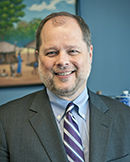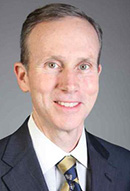Baylor provost resigns after less than eight months
WACO—After less than eight months on the job, Edwin Trevathan resigned as Baylor University’s provost and executive vice president.
 Edwin Trevathan“After prayerful consideration and consultation with my family, we have decided that the position of executive vice president and provost at Baylor University is not a good fit for us,” Trevathan said, adding he will remain as professor of neuroscience at Baylor.
Edwin Trevathan“After prayerful consideration and consultation with my family, we have decided that the position of executive vice president and provost at Baylor University is not a good fit for us,” Trevathan said, adding he will remain as professor of neuroscience at Baylor.
“As I make this decision, which is in the best interest of my family and me, I maintain the highest regard and deepest respect for Baylor University, its faculty and staff,” he said.
Trevathan assumed the post as provost and executive vice president last June. He served previously as professor of epidemiology and dean of the College for Public Health and Social Justice at Saint Louis University in Missouri.
“I know that Ed and his family have come to this judgment after a great deal of thought and prayer, and so I respectfully accept their decision,” Baylor President Ken Starr said.
“We have benefited from so many of Ed’s talents, including his wonderful creativity and analytical skills, as well as his vast experience in sponsored research, medicine and science. We are grateful for his dedicated service to Baylor University and the manner in which he has helped position us for future success.”
 Todd StillStarr named Todd Still, dean of Baylor’s Truett Theological Seminary, interim provost. Still will serve in both roles, as seminary dean and university interim provost.
Todd StillStarr named Todd Still, dean of Baylor’s Truett Theological Seminary, interim provost. Still will serve in both roles, as seminary dean and university interim provost.
It marks the second time Starr has tapped a Truett Seminary dean as interim provost. When Elizabeth Davis resigned as Baylor’s provost in 2014 to become president of Furman University, Starr named David Garland for the interim position.
Not long after Trevathan arrived at Baylor, he convened an implementation group to determine roles and responsibilities for a proposed chief diversity officer at the university.
The initiative, which Starr announced in the fall, met with some resistance. Elizabeth Corey, associate professor of political science in Baylor’s Honors College, published an article asserting diversity in a Christian university must be balanced against the institution’s tradition, heritage and constituency.
“In practice, diversity is understood—by both its supporters and detractors—as a code word, a means of smuggling certain unspoken values into institutions,” Corey wrote.
While Christian institutions should embrace some aspects of diversity, they should approach it cautiously, she advised.
“Christian schools should think long and hard about exactly what kind of diversity they wish to promote before they sign their souls over to the secular rule of diversity officers,” Corey wrote. “If they don’t, they might live to regret it.”